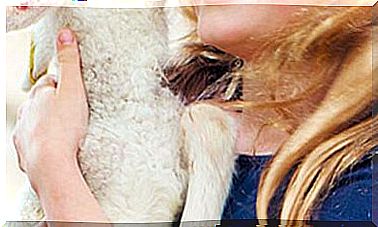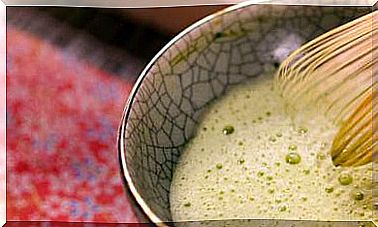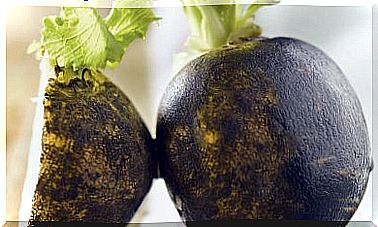Highly Sensitive People: What Makes Them Different?
Extremely empathetic, emotional, creative, supportive … A radically exposed life. Are you a highly sensitive person?

Highly sensitive people have a great sensory capacity that makes them unique, although if they absorb too much information from their environment they can become saturated and end up getting sick. If you recognize these personality traits in yourself, learning to channel the stimuli that come to you will allow you to live your way of being as a true gift.
The first memories of my childhood are sensations. The beginning of the year had a euphoric smell of autumn and printing; the sunflower fields of the La Mancha town where he spent his summers sounded like loneliness, death and mystery; Saturday night was sweet and sparkling, while Sunday afternoons choked on my esophagus rough and gray, but gentle and delightfully melancholic.
I could never stop feeling and lived immersed in a bubble of intoxicating synesthesias that amplified to infinity everything that my soul captured between the lines in each irrelevant gesture of life. It was as if he had extra glands lodged in his gut that secreted gushing sensitivity.
I sensed, felt and absorbed the most hidden glimpses of the heartaches and exaltations of those around me. She lived exposed to emotional radiation without filters, with porous skin.
What are highly sensitive people (PAS) like?
I guess I am among that 20% of the highly sensitive population of people (PAS). We are people with highly developed senses – we usually have some sensory perceptions above normal -, aware of very subtle things in the environment.
We are also creative, we are easily moved by art, by music, we are very empathetic and we have a great capacity for listening.
Some are introverts, shy, but 30% of highly sensitive people are actually extroverts.
We do not have any disorder or pathology and nothing bad happens to us. Being PAS is having certain personality traits that, well channeled, can become a gift for ourselves and for those around us.
Characteristics and personality
A highly sensitive person has great potential to do extraordinary things if he knows himself well and learns to channel the excess information he absorbs due to a more developed sensorineural and perceptual system. Science has taken care of knowing ourselves better and we have data that allows us to know what makes us who we are.
The latest studies on the brain indicate that the right hemisphere of the PAS is more active. It is the area related to emotions, feelings and creativity.
Within it, the frontal area and the amygdala are in a higher than average state of alert. These structures are more illuminated in MRI tests in people with high sensitivity.
- The frontal lobe is a center for the processing of social information and is a key piece in the circuit of empathy. Their hyperarousal translates into highly empathetic people with a superior ability to understand the emotions of others and offer an appropriate response to their needs.
- The amygdala is the center of the emotional brain and those who have it more excited experience emotions with greater intensity.
We are talking about a brain whose neuroimaging exudes color in all places where there is social, emotional, sensory and creative activity. A beautiful brain, but sensitive and delicate, since, as a result of this state of over-alert.
The nervous system of PAS can become saturated and they can suffer from stress and physical problems.
A different childhood
The characteristic features of this personality are usually manifested from birth. According to José Luis Carrasco, head of Psychiatry at the San Carlos Clinical Hospital in Madrid, “high sensitivity has an important genetic load. There are some babies who behave differently.
They are very restless and react to everything : they are very sensitive to changes, to textures, to temperature; they sleep very little and need a lot of physical contact. You can’t leave them alone in bed because their alert system kicks in and they cry right away ”.
We all need to feel loved and protected to be able to trust the world, but very sensitive babies present a plus in the demand for attention that their father and mother have to cover in a particular way. A secure bond will contribute to your emotional stability as adults.
Without the right guidance, many can have a hard time in school and, by adolescence, have conflicting social relationships or become isolated.
It is very important to seek the right help and get an accurate diagnosis to help these children to know themselves better and to seek strategies to have a more comfortable life and develop their wonderful abilities.
Various features that characterize PAS
Elaine Aron, a doctor in clinical psychology, was the first therapist to identify these people’s traits. In his book The Gift of Sensitivity he explains
- PAS have a great capacity to process everything that comes to your senses in a deep and subtle way.
- They are very intuitive.
- They feel the emotions of others as if they were experiencing them themselves.
- They are able to decipher in a very precise way the feelings of the person in front of them.
- They are very empathetic, with a great capacity for dedication and a very deep vision of life.
- They spend a lot of time trying to find solutions to human problems because they are more sensitive to hunger, cold, insecurity, pain and disease.
- They need to feel useful and they are very supportive. This is how they channel their high empathic capacity.
Simon Baron-Cohen, Professor of Developmental Psychology at the University of Cambridge and director of the Autism Research Center, classifies people’s empathic ability into six stages: those at level 0 have no empathy at all and those at level 0. Level 6 have extraordinary empathy: they continually focus on the feelings of others and spare no effort to see how they are doing and offer support.
The expert assures that these people do not necessarily have to suffer for it, although it is possible that it does happen to some.
Barbara Oakley has edited an interesting book on this risk, Pathological Altruism , a state in which people are so moved by the emotions of others that they become overloaded. If we focus only on others, there is a risk that we neglect our needs.
Artists and creatives
Although we find them in all professions, many of the PAS possess artistic talent. It is believed that 99% of the artists are PAS. And it is that sensitivity and creativity usually go hand in hand. Many of the great artists and thinkers of history were very sensitive people.
Sensitivity is the essence of the artist, who has the sublime ability to communicate what he thinks and what he feels and to make the viewer vibrate in his own emotional wave and move with the feelings that the work transmits.
The art for a PAS is a form of therapy, since it allows you to talk about your conflicts and express yourself through other languages, without doing it directly.
Very sensitive people have a wide sensory capacity. His nervous system is highly refined and reacts to the slightest stimulus.
Vicky Blanch, a clinical psychologist specializing in the EMDR psychotherapeutic approach, describes them as “excellent receiving antennas, but they risk being easily saturated. “
Sensitivity to temperature, textures and noise is much higher. They are also less tolerant of pain, alcohol, and need lower doses of most medications.
They absorb all the sensory information from the environment and cannot always drain it or unblock themselves. This situation can degenerate into anxiety and depressive processes and into diseases of the immune system. There are PAS that have a long history of doctors and treatments without results, since, in reality, the only thing they have is that characteristic of high sensitivity.
Are you highly sensitive?
Keys to improve your day to day if you are a PAS:
- Accept your high sensitivity. You are not sick, you have a character trait that says something about the way you see the world. Consciously embrace that side of your being and you will be able to channel it in your day to day life and recognize it as a gift. Everything that is denied grows stronger and turns against you.
- Observe yourself carefully. Investigate how your sensitivity affects you, in what areas it causes you problems and when. See if you were stressed at that time, if you were tired, or if you were hungry. Look for patterns and repetitions.
- Learn to say “no.” You absorb an amount of information that saturates you before others. Learn to say “no”, take a controlled exposure to stimuli, and take time to recharge your batteries.
- Explore different activities. Do physical exercise (better gentle and in contact with nature), practice meditation (mindfulness), work your breathing with energy techniques, paint, play an instrument, sing or do theater …
- Contact other PAS. Look for a group and if you can’t find it, organize one yourself. Getting to know other people like you and learning from each other will help you. You will see that many things that made you feel strange are normal for the vast majority of PAS.
- Look for inspiring examples. There are great artists and people committed to the welfare of humanity who can serve as a model for you. Comparing yourself to this type of person inspires, while comparing yourself to the “toughest” tends to lower your self-esteem.
Create your sacred space
When you need to disconnect, try to be completely alone with as little sensory input as possible. Everyone is different, but most PAS make the most of darkness and silence.









